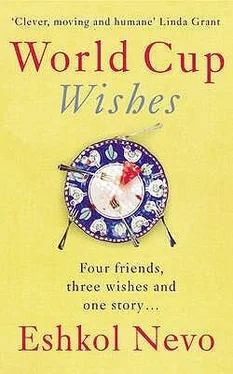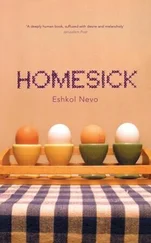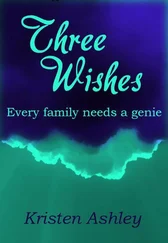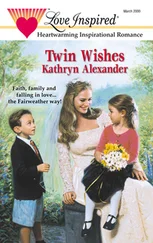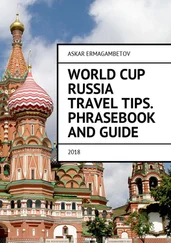Eshkol Nevo
World Cup Wishes
Four friends get together to watch the 1998 World Cup final. One of them has an idea: let’s write down our wishes for the next few years, put them away, and during the next final — four years from now — we’ll get them out and see how many we’ve achieved. This is how World Cup Wishes opens, and from here we watch what happens to their wishes and their friendships as life marches on.
The four men’s bond is deep and solid, but tested by betrayal, death, and distance their alliance comes under pressure. Each friend offers a different perspective, though not necessarily a reliable one… and as they and the world around them change, so do their ideas of friendship and happiness. By the end they are forced to ask whether wishes can really be fulfilled. Or will their story turn out to be a requiem — for a generation, for friendship, or even for one of the four young men?
Once again, Eshkol Nevo has produced a novel suffused with charm, warmth and an astonishing wisdom.
Eshkol Nevo was born in Jerusalem in 1971. He spent his childhood years in various places in Israel and Detroit in the USA. He studied copywriting at the Tirza Granot School and psychology at Tel Aviv University. For eight years he worked as a copywriter and then moved into writing short stories. Today he teaches creative writing and thinking at a number of academic institutions, among them The Bezalel School of the Arts, Tel Aviv University, the Sapir College and the Open University.
Nevo has published a collection of stories, a work of non-fiction and his first novel, Homesick , was awarded the Book Publishers’ Association’s Golden Book Prize (2005).
To Whom it May Concern
On 1 June 2002, I was asked by the family of Mr Yuval Freed to collect his belongings from the police station on Dizengoff Street in Tel Aviv. Among the things that were given to me by Ms Esther Loel, who is in charge of the property room, was a plastic bag containing a large bundle of papers. Since Mr Freed never informed me or his other friends that he was trying his hand at writing, my first assumption regarding the abovementioned bundle of papers was that it must be one of the translations he did for liberal arts students at the university to earn some money. However, there was no name or telephone number written on the plastic bag, and the title of the article in English did not appear at the top of the page, as is customary. I mention all of this to explain why I thought it justified to spend several hours skimming the bundle of papers. I did so not out of voyeurism, but out of a genuine desire to determine the identity of its intended recipient and what I should do with it.
The brief reading I allowed myself made it clear that, in fact, this was not a translated article but a text written by Mr Freed himself. A more thorough reading revealed that it was the manuscript for a book entitled World Cup Wishes , which Mr Freed had been working on over the last year, and that its protagonists are Mr Freed himself and three of his friends. A telephone conversation with Mr Freed’s father confirmed that his son had indeed intended to publish the manuscript as a book, and that he had already reached an agreement on the matter with the Efroni Publishing House in Haifa, owned by their family. According to the father, the only thing left to be done before publication was copy-editing and, to the best of his knowledge, his son had intended to assign that job to me, the undersigned.
To avoid any doubt, I should say that I am not at all sure that the father was correct in thinking that Mr Freed wanted me to edit the book. The more I read of the manuscript, the more puzzled I grew: why did Mr Freed decide to ask one of the protagonists in his book, a character portrayed in the most negative light, to do the editing for him? Nevertheless, since Mr Freed himself was naturally unable to confirm or deny any of this, and since, as a friend, I considered it extremely important to complete the book by his deadline I reluctantly took it upon myself to do the job.
The temptation to make changes in the manuscript was very great. The undersigned, as previously mentioned, is ridiculed in the text. Embarrassing and harsh things that I never said are attributed to me and, worst of all, the book is filled with factual inaccuracies which, in any other situation, would, based on my legal experience, be sufficient grounds for a libel suit. Nevertheless, in the end, I decided to act with a modicum of restraint and minimise my corrections and changes as much as possible, for two reasons. First, despite the many inaccuracies, and despite the generous ‘poetic licence’ Mr Freed granted himself, there is a sense of truth about the entire text, and I was afraid that any change I might make was liable to damage that sense. Second, ‘fixing’ the text without Mr Freed being able to respond or agree to the changes seemed to me to be a betrayal of him and his trust, and since I had already committed one such betrayal during our friendship, I did not wish to add insult to injury.
Despite all the abovementioned, I could not avoid making some changes in my capacity as copy-editor, a role that has been imposed on me. Most of them were cosmetic changes: replacing a comma with a full stop, replacing a full stop with a colon, changing awkward sentence structure, and so on. In only one place in the text did I allow myself to make a factual correction: on see here of the original manuscript it is stated that in the 1994 football World Cup final, Germany played against Brazil, while in fact, it was Italy against Brazil. Based on the many years of my friendship with Mr Freed, I have no doubt that it was a slip of the pen that he would not have wanted to remain in the text.
With the exception of that correction, three minor comments and a short epilogue I thought it necessary to add, everything in this book was written by Mr Yuval Freed, my beloved friend, and he bears sole responsibility for it.
Yoav Alimi (Churchill), Attorney-at-Law
IT WAS AMICHAI’S idea. He always had ideas like that, even though the official ideas man in the group was Ofir, but Ofir wasted all his creativity in ad agencies writing copy for biscuits and banks, so he took advantage of the gang’s get-togethers to be boring and was quiet a lot and talked only a little, using simple Haifa words, and sometimes, when he drank a bit too much, he’d hug us all and say: how lucky we are to have each other, you have no idea how lucky. Amichai, on the other hand, sold Telemed subscriptions to people with heart disease, and even though he sometimes managed to pick up a great story from the sales conversations he had, usually with Holocaust survivors, you couldn’t say that he got much satisfaction or excitement from the job. Every few months, he’d announce that he was leaving Telemed and taking a course in Shiatsu, but something always came up that made him put it off. Once they offered him a bonus. Once they offered him a car. And then there was his marriage to Ilana the Weeper. And then the twins. So all the joy of life bubbling inside him that he couldn’t express in his meetings in the old people’s homes or in bed with Ilana came gushing out with us, his three best friends, in the form of all sorts of brilliant ideas, like taking a trip to Lake Kinneret to celebrate the tenth anniversary of our outing to the Luna Gal Water Park there, or signing up for a karaoke competition and really working on an a cappella rendition of a Beatles song. Why the Beatles? Churchill asked, and you could guess from his tone how that new idea would end up.
Читать дальше
